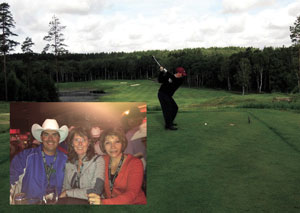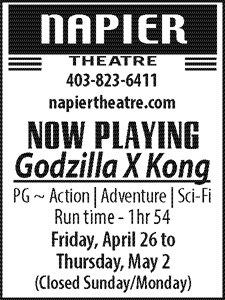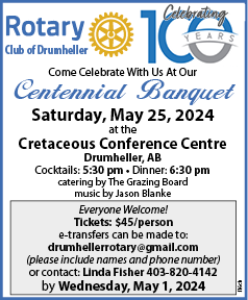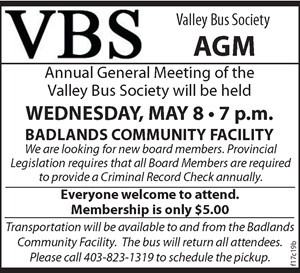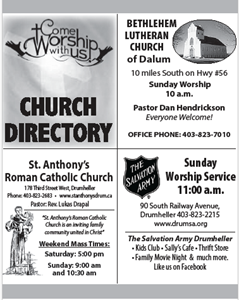It takes a special breed of cowboy to climb aboard a chuckwagon or chariot and put themselves on the line. It’s those brave drivers that make chuckwagon races so exciting.
Shane Cartier, president of the Alberta Professional Chuckwagon and Chariot Association (APCCA), took some time to share with The Mail just what it takes to grab the reins.
“The physical and mental demands has two ends. When things are going good (team is running, turning and competing ) life rolls along pretty smooth and you’re always upbeat. You always try to get more competitive. When things aren’t going well, it can be stressful. Trying to figure out what to change to make things come around and work for you,” said Cartier.
“The physical part can be demanding. They did studies at the UofC when I was running with the WPCA and we were told that driving 1 race was the same as a 1 hour complete workout. I’ve had 2 broken legs and a fractured neck over the last four years just to name a few.”
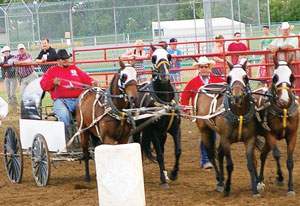
Shane Cartier, president of the Alberta Professional Chuckwagon and Chariot Association, driving his wagon. Cartier has had a 27 year career driving chuckwagons and in that time has broken two legs and has had a fractured neck. However, he loves driving and the family he has found among the other drivers.
Cartier has been racing since 1986, where he started racing with the APCCA with his father and four brothers. In 2004, he joined the World Professional Chuckwagon Association (WPCA), where he posted six top ten runs and won the Calgary Stampede’s Orville Strandquist Award for Top Rookie Driver in 2007. In 2011, he returned to the APCCA.
During his time with the WPCA, he remembers racing in Drumheller quite fondly.
“I never ran in Drumheller until I went up to the big wagons and when I did, it was probably some of my best shows,” said Cartier. “I was second three years in a row!”
However, perhaps one of the biggest bonuses of being a driver, according to Cartier, is the family-like atmosphere among the drivers.
“The racing community is for the most part, just like one big family. We race together, we travel together and we help each other out no matter what happened at the races that day. We don’t always agree on everything but we do get over it quickly just like a good family does,” said Cartier.
Despite the family-like community, there is some “sibling” rivalry.
“All our shows in Alberta are point shows. There are standings right from the beginning of the year to the end. It’s been one of those years where five different guys have won the shows. No one has really been clearly out front,” said Cartier.
Some of the top chuckwagon and chariot racers in the province will be in action over the weekend in Drumheller.
From Friday to Monday, the Alberta Professional Chuckwagon and Chariot Association (APCCA), in association with the Drumheller Stampede and Ag Society will bring back break-neck racing action to the Dinosaur Downs.
“I think the best way to describe what I like about it is it’s non stop action,” said Shane Cartier, president of the APCCA. “Last year, we were in Drumheller and hopefully we can build things so we bring the fans back out to the races. I can’t wait to get there and have the horn blow for 21 heats of racing per night.”


